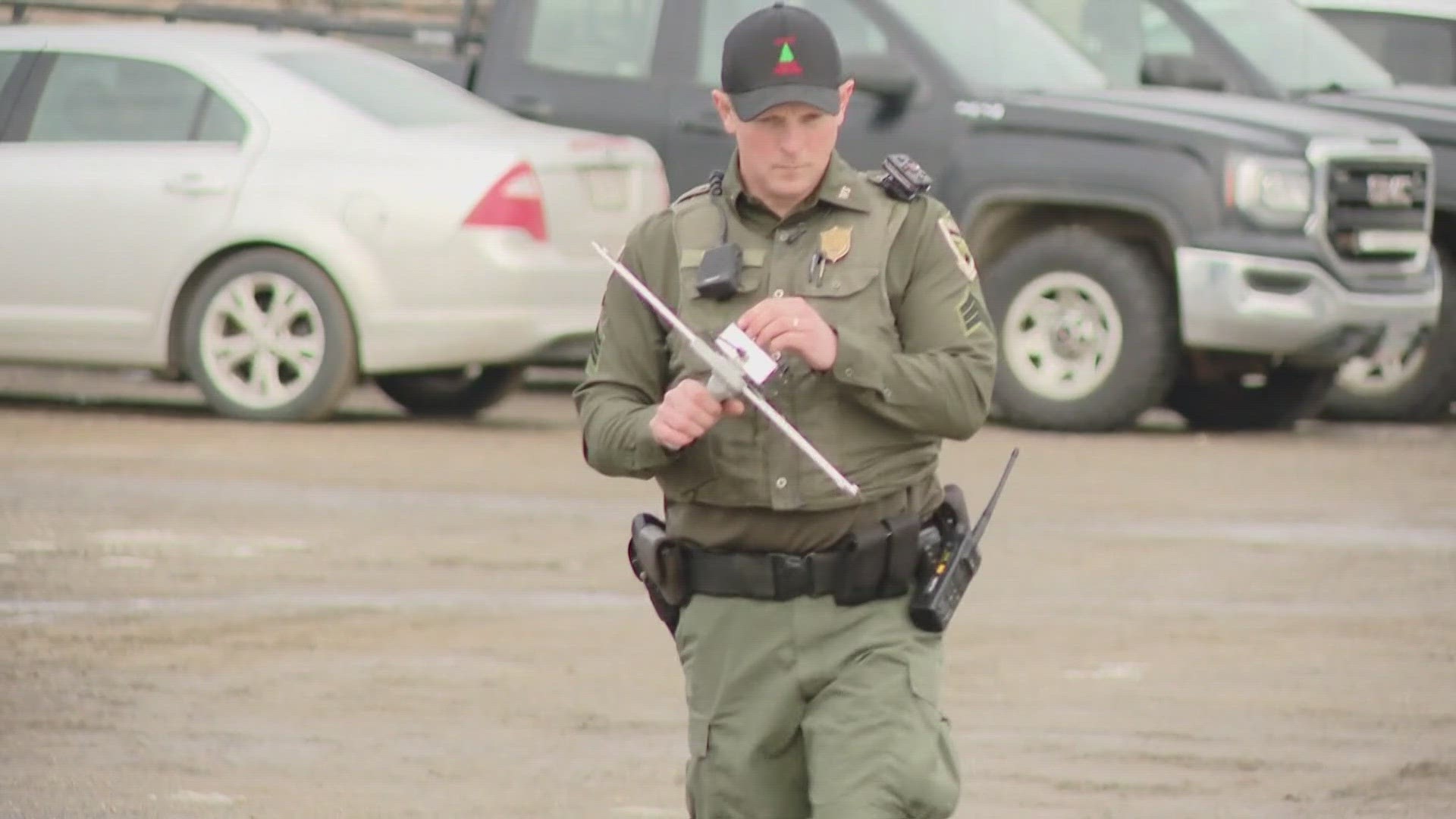LEWISTON, Maine — Six out of every 10 people living with dementia-related illness will wander off at least once, that's according to nonprofit, Alzheimer's Association of America.
In some cases, that wandering can put those people's lives at risk. Recently, the non-profit awarded $6,000 to the Maine Warden Service, which conducts several hundred search and rescue operations every year.
The money will be used to expand the 'Project Lifesaver Program' for families of people with cognitive conditions to bring them home safely.
Norman Moreau likes to help his wife with the laundry. One of the few activities Christine said her husband of 42 years can still do independently.
Norman has Alzheimer's Disease. Some symptoms include losing the ability to recognize familiar places and faces. In the past year, Norman also started wandering away from home, despite locks on the door.
"He just took off. Usually, he comes back, and a couple of hours go by, and you know that he is not," Christine explained.
That's just what happened on a cold day last month. Norman left his home in this quiet neighborhood off Lisbon Street in Lewiston, without a jacket. He stopped by a neighbor's house and several gas stations before ending up at Holy Family Church on Sabbatus Street, two miles away.
Christine alerted law enforcement that Norman was missing. Fortunately, he was wearing a wrist bracelet the size of a watch. Its transmitter emits a radio signal to a receiver used by the Maine Warden Service.
For three years, Maine Wardens have been using Project Lifesaver technology on dozens of rescue missions for people with cognitive problems who are more prone to wander off.
More than 40 wardens, like Sgt. Josh Bubier, are trained to pick up the bracelet's signal using a tracking device that covers about a quarter of a mile, drastically cutting search and rescue times.
"To be able to find someone quicker — it's going to save lives," Bubier added.
The receiver plays audible beeps, which become louder or higher pitched the closer an officer gets to the individual wearing a transmitter.
In Norman's case, Bubier and another warden first searched where Norman was last seen by car, plugged into the tracking devices.
"We both got into our vehicles with our vehicle antennae, and I happened to go in the right direction," Bubier explained.
Bubier ended up at the church, where he did a 360-degree sweep with the tracking device, which led him to Norman, who was inside, not a minute to spare.
"He could have left and walked directly into the woods and found a shortcut and it was getting dark," Bubier advised.
The $6,000 donation from the Alzheimer's Association of America will allow more families of loved ones who are at risk to sign up for the free program.
Christine is grateful for Project Lifesaver, giving her more peace of mind regarding Norman's safety.
"It's just something you want them to still have, a life, and he can't do the things he wants to do," Christine said, trying to hold back tears.
The program offers a little comfort as she cares for her husband all by herself, 24-7, with a disease that has robbed him of his independence.

